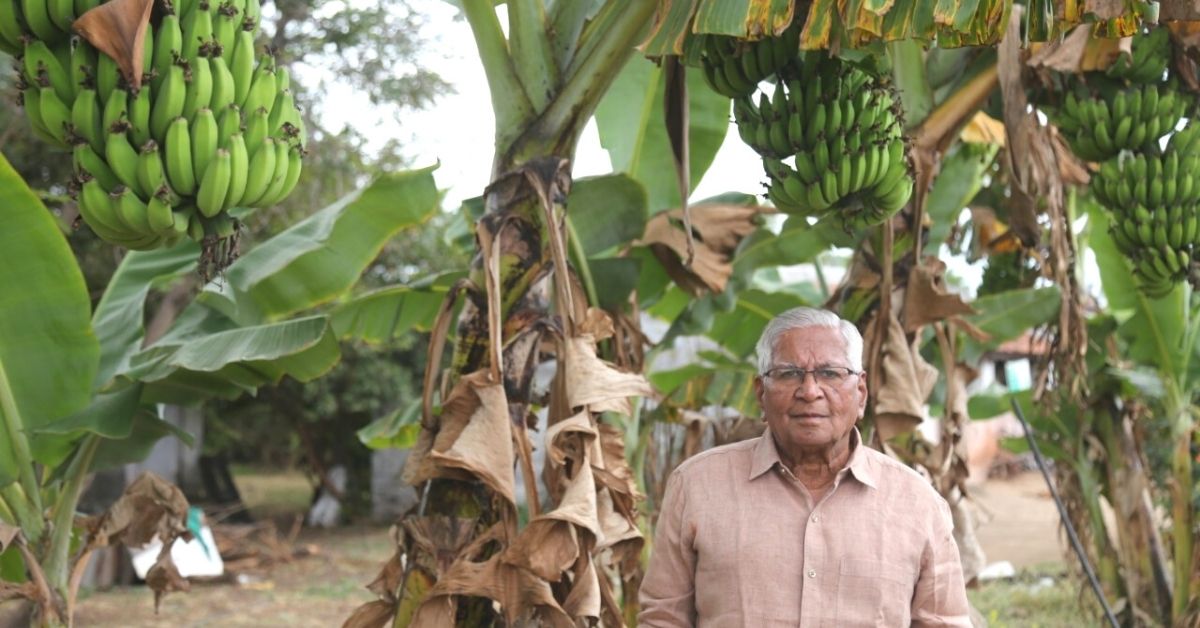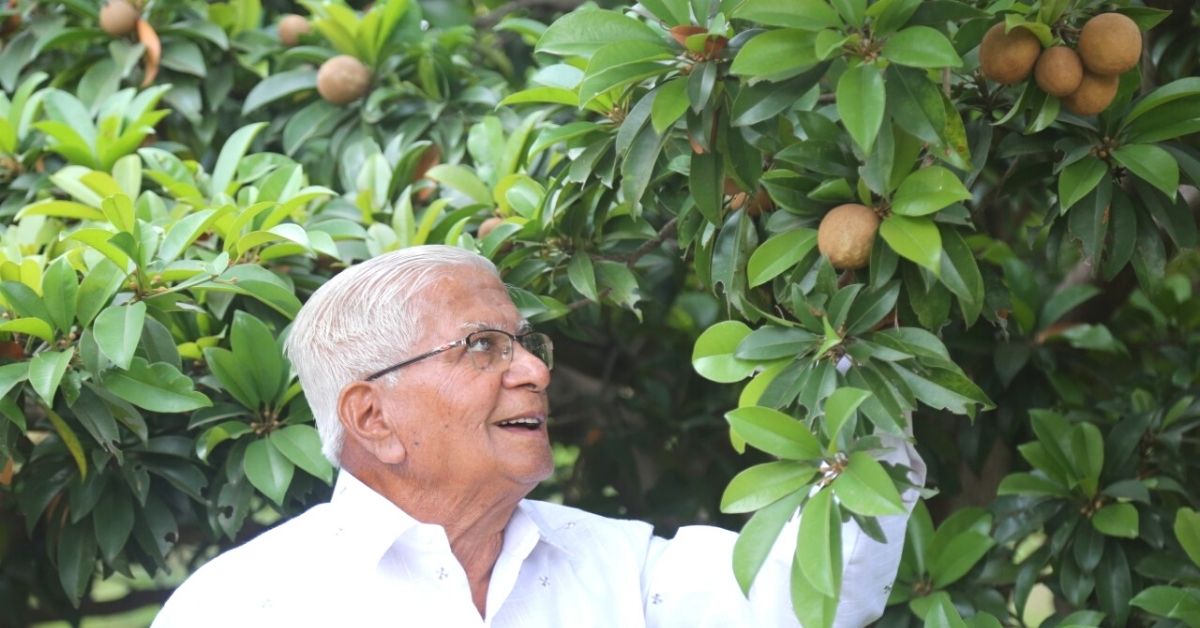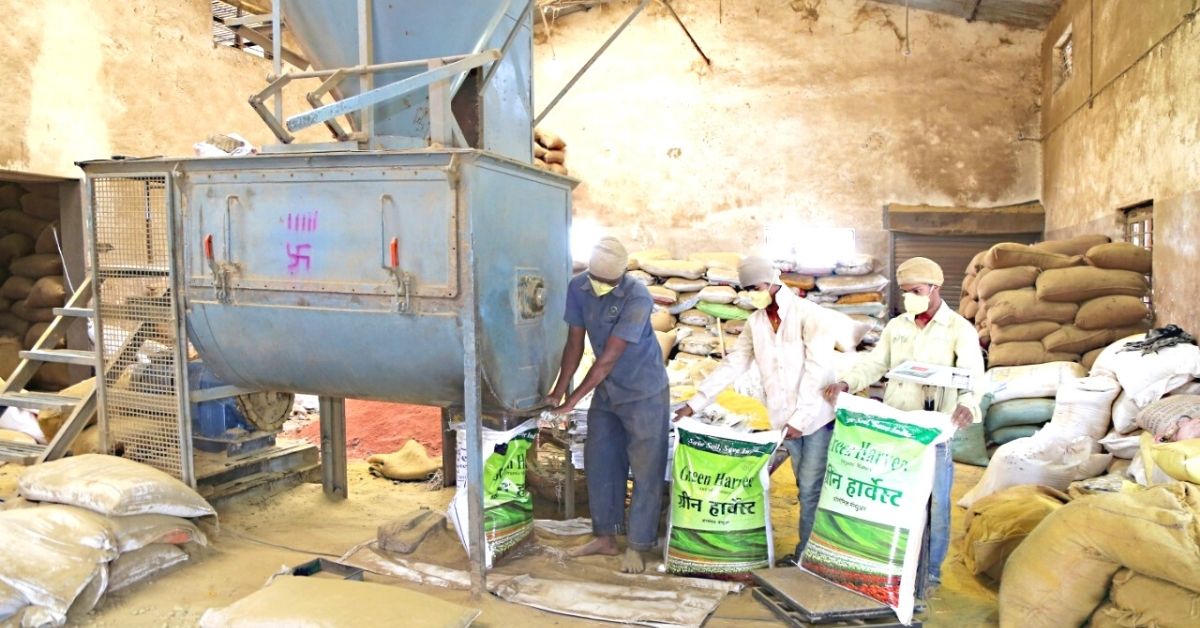Maharashtra Man’s Organic Fertiliser Cuts Water Use By 25%, Earns Rs 10 Crore/Year
In the 80s, Pune-based Jayant Barve’s business of manufacturing and selling chemical fertilisers was thriving. Today, he has switched to producing organic manure through his venture, Nature Care Fertilizer, which is also in demand in Kenya and Namibia

Today, most of the food we consume is grown using chemical fertilisers, and has been sprayed with toxic pesticides, which can adversely impact health. While the effects might not be immediate, they will definitely show up at some point in time. In 1985, Jayant Barve, then 42 years old, began manufacturing and selling this poison. He even won accolades and awards for high sales.
A graduate of physics, Jayant came with the experience of having served in CSIR-NCL (Council of Scientific and Industrial Research-National Chemical Laboratory), and taught students at the University of Pune. Having been in the field of science for years, the man knew exactly what went into these pesticides and fertilizers, and their potential hazards to human life.
The entrepreneur was happy with high sales. “I went on well for a year, and advised farmers on what kind of chemical fertilisers and pesticides they should use for their crops,” he says.
Pricking the conscience

One day, when a farmer came to his store with a harsh demand, Jayant’s perspective changed. “The farmer had been growing grapes, and complained that crows had damaged the crop. They ate the fruit, and the juice spilled onto other ones, ruining the remaining crop. He asked for a solution that would kill the crow when he consumed the grapes,” Jayant tells The Better India.
Once a crow dies of food poisoning, the other crows sense the food is unsafe and avoid consuming it. “I was shocked to hear the strange demand. I realised a strong chemical with the potential to kill a bird would have equally harmful effects on humans. Moreover, he told me the grapes were due for harvest in a week. So the effect of the pesticides would still be strong,” he says.
The entrepreneur denied this request. But the incident changed his approach altogether. Over the next few years, Jayant, now 77 years old, diverted his knowledge to creating organic manure to replace chemical fertilisers used in farms. Now, along with different states in India, the organic fertiliser is a hit in even Kenya and Namibia, and earns him Rs 10 crore a year. Though Jayant’s conscience changed overnight, it took almost three decades to bring a positive transformation in the mindsets of farmers.
To begin with, Jayant decided to experiment with organic farming on his barren ancestral land. “I had never grown a crop in my life, but knew about organic growing methods through experts in Pune. I could only be convinced my product would work after I had experimented and was sure the method was efficient,” he says.
Jayant decided to grow grapes organically. He read books, met experts in Pune, attended seminars and workshops, and started practising vermicompost methods. The technique started yielding results, and the quality of soil improved. “I conducted a soil analysis every six months to check the bacterial content, changes in microbes, and other elements like the proportion of potassium and carbon, which are responsible for giving better characteristics to the soil. I learned that raw waste was the best solution to add fertility to the soil,” he says.
Experiments in the backyard

Jayant says the method allowed for the waste to decompose within the soil and, in the process, added nutrition. The strength of the land improved. Along with grapes, he started growing pomegranate, chikoo, mango and banana, among others. He also shut the pesticide business in 1991.
He wondered if he could make further additions to the composting method to increase soil fertility. “I wanted to create a product that could potentially replace chemical fertilisers. I started introducing other agriculture waste for the purpose,” he says. He added residue from fodder, oil cakes, turmeric peels, tobacco, peanuts, flowers, holy basil and animal waste, along with the vegetable waste.
Jayant says he set up an in-house lab for research and to ensure a scientific approach to the purpose. He shortlisted about 15 organic ingredients that could be added to make the manure. “After nine years of trials, research, and successful results from the 30-acre farm, I achieved the desired product. The organic manure was rich in nutrients, improved the texture of the soil, increased its water-holding capacity, had good moisture content, and allowed microbes to do their job,” he adds.
Citing an example, he says, “Introducing the chemical-based product urea allows microbes to attract 43 per cent nitrogen from the air. But with my product, 73 per cent of the nitrogen could be absorbed. The microbes were able to conduct carbon sequestration and increase oxygen levels in the soil efficiently.”
Ahead of its time

Jayant then started Nature Care Fertilizers in 1997 to offer organic manure. However, the entrepreneur realised his work put him way ahead of his time. “We were offering a product for which the market was not ready. Farmers trusted chemicals. The company ran in losses until 2006. But I believed in my product, and conducted meetings, sessions and awareness programmes to convince them,” he adds.
The product was successfully tried and used by farmers from the drought-prone regions of Latur, Osmanabad and Jalna. Gradually, awareness increased, and more farmers began buying the product. The organic manure became popular, as it also reduced crop production cost by 20-25 per cent. The resultant soil, which is of better quality, reduced the amount of water and electricity required to irrigate the land by 60 per cent.
At present, the company produces 60 tonnes of organic manure every day, as well as bio-pesticides made from neem, karanj, and other natural products. These products are bought by farmers across Maharashtra, Goa, Madhya Pradesh and Karnataka, and the fertilisers are also in demand in South African countries and Taiwan.
Jayant continues to spread awareness about chemical-free products. He sells organic vegetables and fruits to markets under the brand ‘21 Organic’. “I am also experimenting with organic sugarcane crops to process jaggery, and have received a certification of organic sugarcane. My plan is to produce jaggery for the market,” he adds.
In recent times, Jayant has taken a backseat and handed over the business to his son. “I want to farm and grow vegetables. I continue to be involved in R&D, but my son takes care of the sales and marketing aspect,” he adds.
(Edited by Divya Sethu)
If you found our stories insightful, informative, or even just enjoyable, we invite you to consider making a voluntary payment to support the work we do at The Better India. Your contribution helps us continue producing quality content that educates, inspires, and drives positive change.
Choose one of the payment options below for your contribution-
By paying for the stories you value, you directly contribute to sustaining our efforts focused on making a difference in the world. Together, let's ensure that impactful stories continue to be told and shared, enriching lives and communities alike.
Thank you for your support. Here are some frequently asked questions you might find helpful to know why you are contributing?


This story made me
-
97
-
121
-
89
-
167














